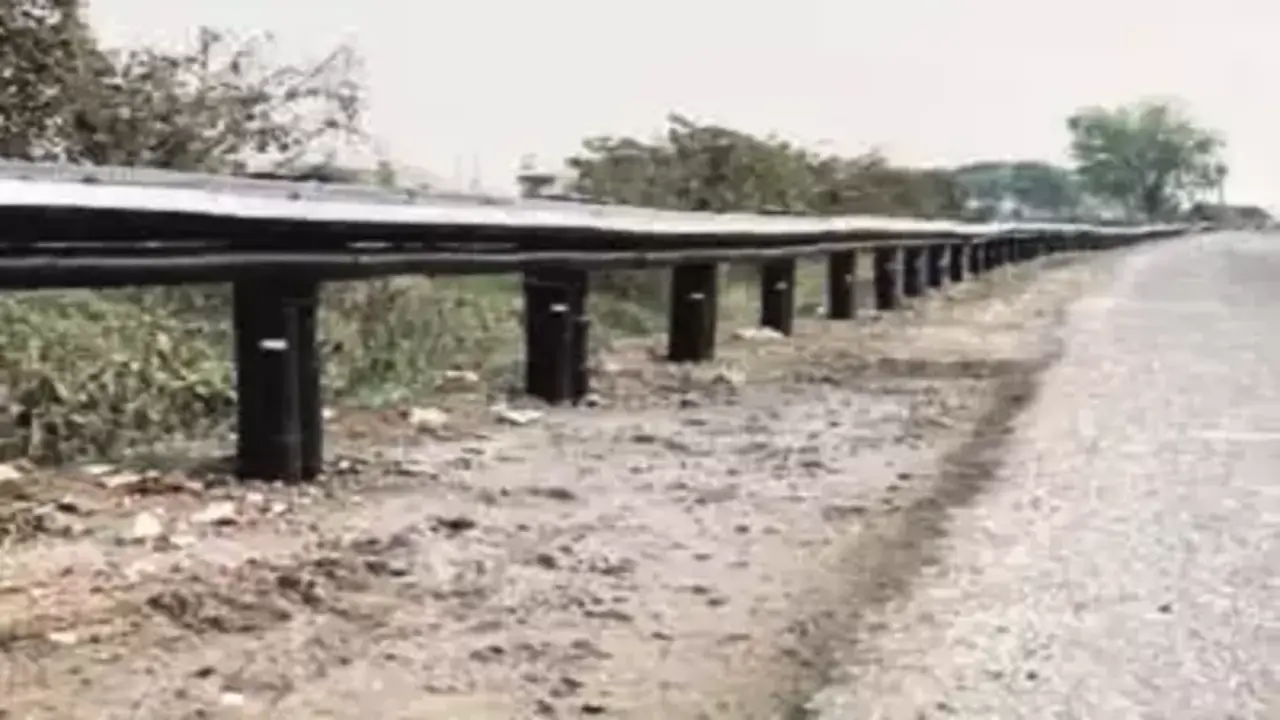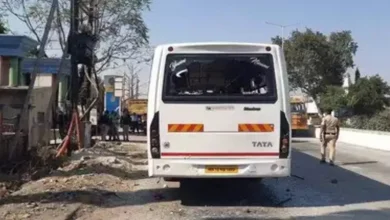World’s first 200m bamboo crash barrier on Wani-Worora NH960 in Maharashtra
It is also the brainchild of Road Transport and Highways Minister Nitin Gadkari. The center had proposed to replace steel barriers with bamboo crash barriers in an innovative way to reduce road accident deaths.
Nagpur: In the same region, bamboo is doing very well with the world’s first 200m bamboo crash barrier, popularly known as Kooch Kavach, being installed on the Wani-Worora NH960.

It is also the brainchild of Road Transport and Highways Minister Nitin Gadkari. The center had proposed to replace steel barriers with bamboo crash barriers in an innovative way to reduce road accident deaths.
The cost-effective crash barrier has been manufactured by Ganesh Verma of Bhavya Srishti Udyog Pvt Ltd, Bemetara, Chhattisgarh. It is the only firm that has come up with innovation under the guidance of Nagpur-based architect and veteran bamboo expert Sunil Joshi.
Sunil Joshi, who is also the former president of the Bamboo Society of India (BSI) Maharashtra chapter, told TOI, “At Nitin Gadkari’s insistence, Bhavya Srishti Udyog has taken up the task of realizing the dream of making the world’s first bamboo crash barrier.”
Crash barrier has undergone a fire rating test
“This is indeed a historic achievement for the bamboo sector and for India as well, Because these crash barriers are an ideal alternative to steel and environmental issues, apart from being a rural and agro-friendly industry in itself.” Sunil Joshi said.
“I am optimistic that not only India but the world will adopt it for the greater good of the planet. All PWDs will include this bamboo crash barrier in their fold at the earliest. Wherever possible, the government should make its use mandatory,” said Sunil Joshi, who is also an advisor to the Chhattisgarh firm.
The said bamboo crash barrier has been named ‘Kooch Kavach’ and has also been crash-tested at the Pithampur (Indore) laboratory of National Automotive Test Tracks (NATRAX). It is a state-of-the-art automotive testing and certification center under the Ministry of Heavy Industry.
The crash barrier has also undergone a fire rating test at Central Building Research Institute (CBRI), Roorkee, and is approved by Indian Roads Congress (IRC).
Sunil Joshi has told about this that Bambusa balcoa species have been used in making the barrier. And bamboo is treated with creosote oil and coated with high-density polyethylene (HDPE). Also, the recycling value of bamboo barriers is around 50-70% while that of steel barrier is 30-50%.
Also Read: Money laundering: Searches were conducted at 13 places in Nagpur, 2 in Mumbai




